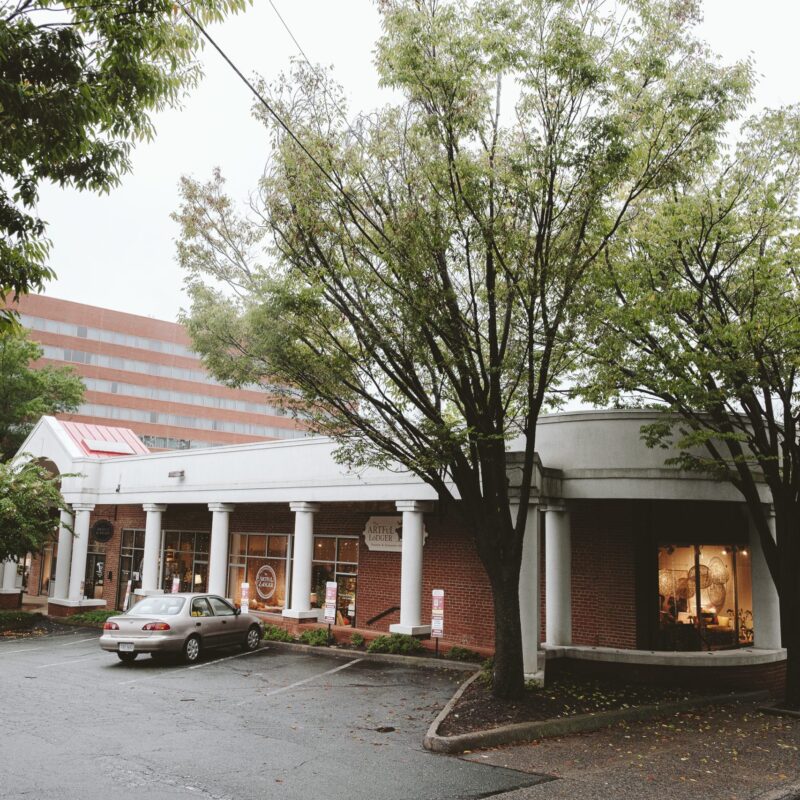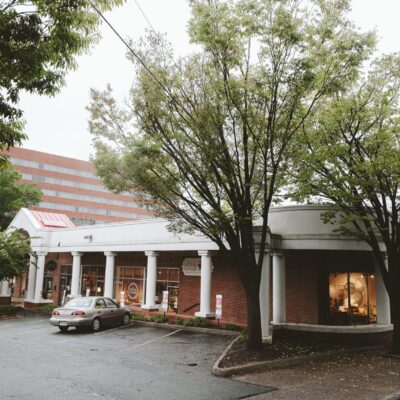 Deliver Us from Hollywood: Previewing the Virginia Film Festival
Deliver Us from Hollywood: Previewing the Virginia Film Festival
“God is in the details,” said German-born architect Ludwig Mies van der Rohe. (Or maybe it was Gustave Flaubert…Nobody’s really sure.) The point is that the true miracle of creation lies not in the grand, showy works, but in the seemingly inconsequential details. It is only in these tiny flourishes that the work of an artist can truly be understood.
Robert Duvall is a man of details. The celebrated art of acting comes so much in the form of big, expressive gestures—think Jack Nicholson shouting “You can’t handle the truth!” or Al Pacino reciting just about any line of his career, from “Attica! Attica!” to “Say hello to my little friend!” Duvall has never been that kind of actor. He’s never been the “leading man” type. His high forehead and fixed, soulful eyes seem most suited for character roles. And his best performances are ones of quiet-yet-powerful emotion.
One of Duvall’s most iconic roles came in the Godfather films. As Irishman Tom Hagen—the intelligent and fiercely loyal consigliere to Marlon Brando’s Vito Corleone—Duvall serves as a subtle counterpoint to the bluster and bloodlust of his Italian-American employers (Al Pacino among them, of course). Indifferent to the chaos and violence around him, Hagen goes about his job with efficiency and discretion. It’s an amazing, self-effacing performance, really. And one that virtually defines Duvall’s screen presence. He’s the quiet one. The one in the background, quite often. But the one you never forget.
And, as Duvall hits town to present his two most acclaimed films, The Apostle and Tender Mercies (and to be presented, in turn, with the Virginia Film Award), audiences will be reminded, once again, just how riveting such quiet intensity can be.
Robert Selden Duvall was born in San Diego in 1931. The son of a career military officer (a rear admiral, no less), Duvall eventually served a two-year stretch in the Army. Thanks to the G.I. Bill, Duvall eventually attended the prestigious Neighborhood Playhouse School of the Theatre in New York City. There, he studied with the legendary Sanford Meisner, and palled around with struggling young actors like Dustin Hoffman and Gene Hackman—men who would virtually define the art of movie acting in the 1970s.
Duvall’s motion picture debut came in 1962’s classic To Kill a Mockingbird, the Academy Award-winning adaptation of author Harper Lee’s plea against racism and prejudice. The film is anchored, of course, by Gregory Peck’s moving, deeply humane portrait of Depression-era lawyer Atticus Finch. But it is Finch’s children and their relationship with tragic small-town outcast Boo Radley (played with extraordinary delicacy by Duvall) that gives the film its heart. “You never know someone,” Finch tells his daughter, “until you step inside their skin and walk around a little.” Even in this first film role, Duvall proved his talent for stepping inside other people’s skins.
Throughout the ‘60s, Duvall worked with some of the most influential filmmakers of the era, from Arthur Penn (The Chase) to Robert Altman (The Countdown) to Francis Ford Coppola (The Rain People). In 1969, Duvall had the honor of being shot by John Wayne in True Grit (in one of Duvall’s few truly villainous roles). In 1970, he again worked for Altman, originating the role of fastidious suck-up Major Frank Burns in M*A*S*H*. In 1970, he worked on a student film called THX 1138 for a young Californian film major named George Lucas.
But it wasn’t until 1972, and that role as Mob lawyer Tom Hagen in Francis Ford Coppola’s Godfather, that Duvall got real recognition—not to mention his first of six Academy Award nominations.
Duvall continued to essay important roles throughout the golden era of ’70s independent film. Featured roles in Tomorrow (1972), The Killer Elite (1975), Network (1976) and The Seven-Per-Cent Solution (1976) established him as a reliable performer. In 1979, Coppola again drafted Duvall’s help, this time for the notoriously troubled production of Apocalypse Now. Despite the stories of drugs, in-fighting, obsessive behavior and general weirdness that took place in the Philippine jungles during filming, the Vietnam War drama went on to become a modern American classic. Duvall got to spout one of his most iconic lines, “I love the smell of napalm in the morning,” and went on to nab his second Oscar nomination for Best Supporting Actor.
Duvall was again nominated for an Academy Award for his powerful depiction of a brutal, bullying military father in 1979’s The Great Santini. But it wasn’t until Duvall’s performance in 1983’s Tender Mercies that the great actor finally nailed down his first Oscar win.
In that unforgettable drama (written by Pulitzer Prize-winner Horton Foote, who just happened to pen the screenplay for Duvall’s first outing, To Kill a Mockingbird, as well), Duvall played a down-and-out country singer who befriends a young widow and her son, thereby finding the inspiration to resume his career.
Duvall’s career hit its arguable high point in 1998, when the actor-turned-filmmaker wrote and directed the soul-searching drama The Apostle. Again landing an Academy Award nomination for his acting, Duvall plays Sonny Dewey, a Texas preacher whose happy life spins out of control. Fleeing to Louisiana in the wake of tragic circumstances, Sonny finds work at a small radio station, and—like Tender Mercies’ Mac Sledge—learns to live his life over. Though Sonny is clearly a flawed character, he is also a deeply sincere one—perhaps one of Duvall’s most complex creations. Duvall’s father was a Methodist and his mother was a Christian Scientist—he was raised in the Christian Science religion, and claims to follow it to this day, despite many years of living a somewhat un-godly lifestyle (as he delicately put it in a 2006 Vanity Fair article). And it’s this dichotomy—Duvall’s real-life mixture of the sacred and the profane—that obviously informed this indelible role. “Perhaps it’s not unexpected that Duvall had to write, direct and star in this film, and round up the financing himself,” film critic Roger Ebert noted in his review of the film. “There aren’t that many people in the film industry gifted enough to make such a film, and fewer still with the courage to deal honestly with a subject both spiritual and complex.”
To this day, Duvall continues to impress with performances in films both large
(a wise old car mechanic in 2000’s Gone in Sixty Seconds) and small (a dance-obsessed hitman in 2002’s Assassination Tango). More often than not, his performances are little miracles of concision and reserve. Why go for that grand, showy gesture when one haunting glimpse of those Artisian-deep eyes can express so much?
Among the most famous advisements of Duvall’s onetime teacher, Sanford Meisner, was, “The foundation of acting is the reality of doing.” Rarely could you accuse Duvall of acting. He has, instead, spent his entire life doing.





